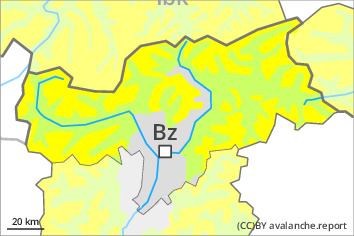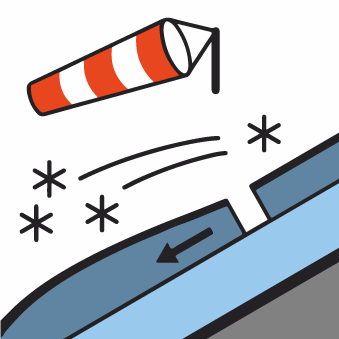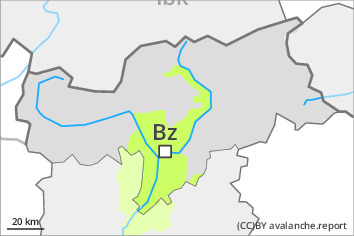
Danger level
 | treeline |
|  |
|  |

Fresh and older wind slabs require caution.
The fresh and somewhat older wind slabs can be released by a single winter sport participant above the tree line. Caution is to be exercised in all aspects in gullies and bowls, and behind abrupt changes in the terrain. The number and size of avalanche prone locations will increase with altitude.
In addition a latent danger of gliding avalanches exists, in particular on steep east, south and west facing slopes below approximately 2600 m. In isolated cases the gliding avalanches are quite large.
Snowpack
dp.6: cold, loose snow and wind
dp.2: gliding snow
As a consequence of a gathering strong wind from northerly directions, further wind slabs will form in the course of the day. The somewhat older wind slabs are lying on soft layers. The fresh wind slabs are lying on surface hoar in some places.
Towards its base, the snowpack is largely stable. Snow depths vary greatly above the tree line, depending on the infuence of the wind. The snowpack will be subject to considerable local variations.
Tendency
The fresh and older wind slabs remain in some cases prone to triggering.



